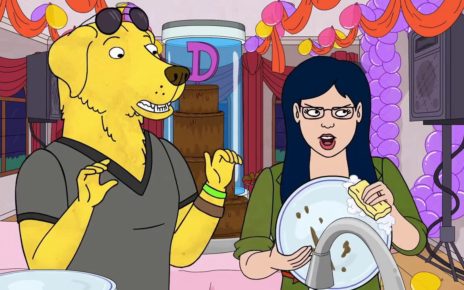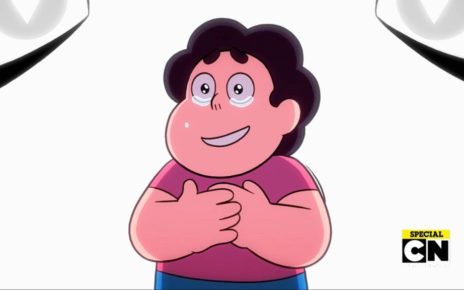I remember when I first realized that Morty Smith of Rick and Morty was a mixed-race character. It should’ve been obvious, but at the time it wasn’t. I calculated it in my brain like those judging onlookers in the Spongebob Squarepants episode when Spongebob and Patrick adopt the baby clam. Sanchez + Smith = Morty’s part Latinx!
As a mixed-race person who often “passes” as white, this revelation felt like adding a new trophy to the shelf (I have no trophies, let alone a shelf of them), or maybe receiving a decent grade on a test I thought I’d failed. It made me excited. I felt like I had cause for celebration.
I have representation! I thought eagerly, just as the waves of You don’t need representation, you white-passing piece of shit! crashed on the mental shorelines of my own insecurity and self-doubt. I mean, why do I need representation exactly? I look, act, and live a life similar to most of the white (“Caucasian”) people around me. Still, looking for validation, I texted my friends about it. “Morty is mixed,” I wrote, and then I began to explain how and why I knew this, like it wasn’t obvious. If other people really believed it, then maybe that meant they’d see me for who I was…a white-passing piece of shit who at least some people could recognize as being part Hispanic and I mean, come on, guys, don’t you see it? Even a little bit? Do I really need to put on a stereotype to fit the bill?
The texts I received back went along the lines of:
“But Beth is blond!”
“Morty is pretty white.”
“They don’t really talk about it in the show.”
There went my new trophy. As validated as I once felt, I now became disheartened by the realization that Morty wasn’t my champion of mixed-race cultural representation. Like me, he’d probably go unnoticed out in the real world. His “perceived identity,” the notion that he’s white and only white, had nothing to do with what he actually was. A true animated champion would have been able to properly articulate the nuances of “mixed race” in a way that I’d always hoped to. Morty, however, would continue to travel the galaxies unclaimed and uncharted.
The texts I received back felt like a jab at my own ethnic identity. Even though my friends knew and all readily accepted me as mixed, I couldn’t help but consider the texts as personal digs. I mean, what’s the difference between Morty and me, when you really think about it?
Well for one, my mother isn’t blonde. She is dark-haired with dark skin. And as a self-proclaimed feminist, my mother kept her maiden name after marrying my dad. So this was my only tie to any type of Latinx identity: her last name, “Rivera.” It reminded me that somewhere in the not-so-distant land of Puerto Rico, I had a bunch of relatives with the same last name. They didn’t know me and I didn’t know them, but still, we were united by blood.
When asked about her ethnicity, my mother almost always says she identifies as a white woman. She’d say, “I am not black, so I’m white.” She forgets that even though she isn’t black, she isn’t like her white female counterparts at all. Hispanic woman are often discriminated against in ways white women aren’t.
Maybe like me, he’s white but not too white. White, but with a streak of “flavor” that has some random strangers asking, “There has to be something else…I can’t tell…what are you?”
My grandmother is the same way. Though born and raised in Cuba, my grandmother finds hardly any pride in being Hispanic. Cuba, yes—she loves Cubans. But her ideal Cubans always appear to be the whitewashed, hyper-Americanized Cubans. The Ted Cruzes and Marco Rubios of the world. Growing up, my holidays certainly felt like any other “white” kid’s would. My only take on being Hispanic was rice and beans (all the time, always), platanos, and Vix vapor rub for persistent colds. Besides that, my Puerto Rican grandpa was too busy sleeping by the television while my Cuban grandmother yelled intolerant expletives for there to be any emphasis on Hispanic culture in my life.
And like Morty, I’m pretty white. But maybe the two-dimensional animation distracts us from the subtleties of Morty’s “mixed” experience. Maybe like me, he’s white but not too white. White, but with a streak of “flavor” that has some random strangers asking, “There has to be something else…I can’t tell…what are you?”
These questions annoyed me growing up as much as they validated me. As a result, filling out the race and ethnicity portion of standardized tests always stumped me. The options are always “White (not Hispanic)” or “Hispanic.” It leaves me wondering, and it’s dumb. Which am I? But what does it matter? I know which one I am, I just don’t know if I have a right to claim it given the choices provided. During one of my overthought, drawn-out questionnaire sessions, a friend peered over my shoulder and decided to help me out. “You’re white.” he said. “Put white.” It takes a lot to explain to people that Hispanics can be white. That being Hispanic isn’t a race, it’s an ethnicity that can represent people of any color. So yes, friends, Morty is pretty white. But that doesn’t mean he isn’t also Hispanic.
He and I are also a lot of other things on top of that. Like Morty, I’m wimpy, I stutter, and I don’t always assert myself. I stammered something to my friend about being “50% Hispanic” and therefore “technically lying” when I eventually checked off the “White (not Hispanic)” box. To my friend it doesn’t matter. I don’t make him feel the way Hispanics do when he meets them, so I might as well not be Hispanic. I don’t fit the stereotype of, say, a brown girl with dark eyes who has an accent, a sassy abuela, and a great sense of rhythm. Because of that, when he sees me, the bells in his head don’t go off to indicate: “You are speaking to a Hispanic person right now.” I’m not offended, and I’m still his friend. I get it. Sometimes it needs to be glaringly obvious that we are a certain thing before society is ready to validate that we are that very thing.
So, I understand what my friends mean when they said “they hardly mention it in the show.” Because there is hardly any mention of Morty’s grandpa Rick being Hispanic, let alone Morty himself. I wonder what needs to be mentioned, though. Rick already has the last name Sanchez. Maybe he needs to wear a sombrero or throw around random Spanish phrases like a Spanglish genius. Perhaps they should sit over plates of rice and beans during dinner or dance with maracas while they travel different realities. Maybe Rick should call Beth “mi hija,” and Morty should reply with, “uhh…no sé, Rick.” What should Dan Harmon do to make this point clear? Should he insert random Latinx stereotypes in an attempt to validate the ethnicity of his title characters? Importantly, given that Morty seems to pass for white in his day-to-day, he does not have to deal with the same levels of sustained prejudice that those who do not pass for white endure. How does a sci-fi comedy navigate that—even with another 70 episodes on its schedule?
And even if it’s more subtle—a conversation, a momentary mention that Rick happens to be Puerto Rican or Mexican or Venezuelan—is it necessary? Do people in real life need to have conversations in order to validate the identity attached to their names?
I don’t know the answer to all of these questions. I truly believe that it is important to create media that reflects how diverse society is today. But that being said, it is also important to create media and art that doesn’t need to necessarily prove a point about itself. Rick and Morty shouldn’t need to spoon-feed its viewers a character’s ethnic identity in order for them to be validated—because this is nearly impossible to do correctly and will almost always leave people within a particular group feeling misunderstood, stereotyped, and unrepresented. There is no textbook definition of any ethnicity.
I am not asking to boycott, say, Dora the Explorer or Handy Manny, because they are important and their representation makes it possible for young Latinx people to feel as if they matter. I’m just imploring society to be more accepting of subtler representations of race—a grey area that doesn’t need to embody all of the preconceived notions of what a certain race or ethnicity is. I remember reading once that Sofía Vergara was asked to dye her naturally blond hair to brown because producers thought it would make her look more Hispanic. These preconceived ideas are everywhere. For those who don’t know, she was born in Colombia. She can’t get more Hispanic than that.
The fact that Morty’s ethnicity goes largely unmentioned throughout the series validates the mixed people who don’t necessarily have a concrete cultural background. It even validates the mixed people who do. Yeah, Morty is white and has a blonde mom, but his grandfather is Rick freakin’ Sanchez. There are no hard-and-fast rules for representation, and it is good to have a have another character that illustrates that, too. Morty is just as valid as me.
Thanks for reading The Dot and Line, where we talk about animation of all kinds. Don’t forget to for this article and follow us on Twitter and Facebook.





